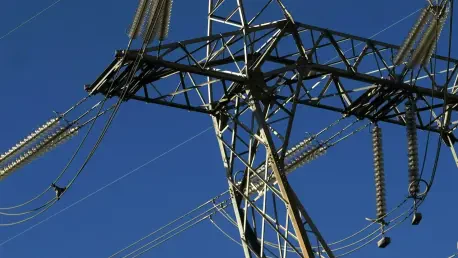In recent years, the European Union has been facing an unprecedented energy crisis marked by soaring gas prices, geopolitical tensions, and a heightened awareness of the risks associated with fossil fuel reliance. This predicament has intensified the need for alternative solutions, leading to an urgent call for widespread electrification across various sectors. As experts convened at the Eurelectric conference, industry leaders and policymakers emphasized that electricity could become Europe’s resilient backbone, driving economic revitalization and industrial growth. Electrification is not merely a solution for environmental sustainability; it becomes vital for both energy security and global competitiveness. A detailed report presented at the conference sheds light on the enormous potential electrification holds to bolster the EU’s industrial competitiveness despite challenges like high costs compared to the United States and China.
Unlocking Industrial Competitiveness
Industry leaders argue electrification could serve as a catalyst to renew Europe’s economic vigor by transforming key industrial sectors such as steel, chemicals, and other heavy industries. At the heart of this anticipated transformation is the promise of reducing operational costs, enhancing energy efficiency, and facilitating cleaner production methods. The conference highlighted the need to adjust existing state subsidies and reduce technology costs, which pose significant barriers to widespread electrification adoption. Knowledge shared among experts indicates that targeted subsidies and financial incentives could stimulate an accelerated uptake of electric solutions. Moreover, electrification holds the potential to resolve one of the EU’s most pressing issues — dependency on Russian fossil fuels — amid geopolitical uncertainties, illustrating the strategic importance of transitioning to sustainable practices aligned with EU energy goals.
Future Energy Independence and Security
With the EU’s goal of achieving energy independence by 2027, renewable energy sources and electrification have become critical components of building a solid and reliable energy foundation. Prioritizing renewable electricity is now considered vital for future energy security, addressing the current global gas market instability. Advanced technologies like hydrogen for high-temperature industrial applications are set to seamlessly blend with electrification strategies, extending the range of potential innovations. These efforts will drive a climate-friendly transition, aligning with the EU’s sustainable development objectives. Stakeholders have underscored that these initiatives aren’t solely about energy savings but are key to revitalizing the EU’s economy and industry, moving Europe towards a more energy-efficient and environmentally conscious future. Electrification is essential for strengthening Europe’s energy security, boosting industrial competitiveness, and ensuring a sustainable economic outlook, positioning the region advantageously on the global stage.









